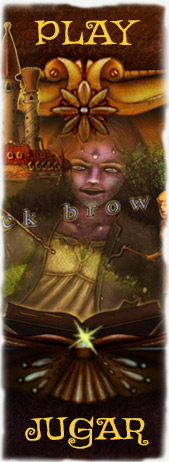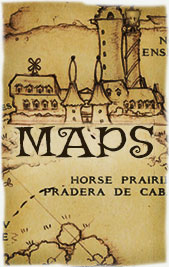Thoughts On Diplomacy Development in Video Games
In previous posts, I’ve discussed what skills to use to create a diplomacy system in a fantasy RPG, and why. I skipped over an analysis of the basic premise and foundations of using diplomacy. So I want to backtrack and start at the beginning.
I am a weekend warrior making a retro web game with still graphics and basic animations, not a professional. I have a reasonable amount of fiction writing study and experience, however. Unfortunately, scholarly treatments like this one on this subject seem very difficult to find.
I can only do my best to see a vision above abject mediocrity, and maybe edit and add later, to better use this as a reference document.
“The Situation”: Character And Conflict.
It’s the GM’s role to create a story that requires diplomatic solutions. The most basic scenario, the heart of a fantasy tale, is character and conflict.
A player is roleplaying a character (player character (PC), protagonist) in the game, who wants something from another character (non-player character (NPC), the antagonist), and this conflict cannot be resolved by combat. The puzzle is how to win this conflict.
The player’s character in the game has a set of skills to use. Maybe the character is dumb, or attractive, or whatever. This character is like a swiss army knife for the player. The meta-game is for the player to choose how to use that knife to best advantage to beat the puzzle.
So let’s explore different aspects of this basic premise of the puzzle.
How to make diplomacy engaging?
Most players love to murder things. It’s a matter of life and death, so the drama and conflict are high. Most importantly, the stakes are high. The rewards are also usually high compared to diplomacy.
So let’s brainstorm a list of how the GM can make diplomacy compelling, instead of a dull, forgettable hurdle to jump over.
Up the stakes. It’s a matter of life or death.
Up the drama. Enhance the conflict like a soap opera or reality TV show. Manufacture reasons for these characters to be at each others’ throats.
Leverage. It’s possible the player character has leverage over the antagonist.
Agenda. The antagonist should have their own motives and agendas, and should show them.
Secrets. The antagonist may have secrets, which can be used as counter-leverage against the player.
Surprises. Unexpected reactions that throw a monkey wrench in the plans. Example: again and again the detective or cop is foiled, and the suspect gets away before finally cornered.
Equal rewards to a resolution by combat.
An ideally emotional feeling that you accomplished something.
Leverage: Finding And Exploiting Character Weaknesses
Leverage is way to gain the upper hand in the diplomatic encounter. A good way to write a leverage scenario seems to be to write the NPC with a significant, character-defining weakness. The first half of the puzzle (for the player) is to determine or guess the weakness of the NPC.
I’ve thunk up list of signature weakness(es) of NPCs, then possible method(s) to exploit them, and added ideas for possible consequences of failed diplomacy.
Poverty, Greed. Player character (PC) has an item or money that the NPC desperately needs. Fail: NPC rejects being manipulated, and acts in rage. Or they would rather try to steal the item than give what the PC wants, due to fear of a greater danger from doing so (i.e. betraying the street boss.)
Lust. NPC is a known lush who desires women or men like the player character. Fail: rape, kidnapping, possible catastrophe depending on the NPC.
Avarice, Gluttony, Sloth. The NPC will respond to an offer of something they covet, or something that appeals to their most base natures, such as laziness and excess. This could involve an additional fetch quest.
Stupidity. The NPC has a track record of doing stupid things and making bad decisions. This can be exploited by an unethical PC. Fail: the NPC counter-cons the PC because he is surprisingly more streetwise than the PC, or he gets revenge later.
Naive. The NPC isn’t stupid, but is innocent to the ways of the world. Vulnerable to manipulation romantically or by false promises of money (long con).
Pride. The NPC is known to be arrogant and vain, and is therefore vulnerable to flattery. Fail: NPC sees through the attempt.
Vulnerability to intimidation. The PC has a significant advantage in force in some way, and is willing to threaten to use it. Fail: threat called as a bluff, or threat is rebuffed with a counter-threat.
Submissive. The PC will back down to a dominant personality, without threat of physical force. This could be guessed by the PC as a racial, gender, or sexual trait. Fail: NPC secretly being manipulated and de-escalated, but then acts with passive aggressiveness to subvert the outcome.
Vulnerability to blackmail. PC knows a secret about the NPC that would be significantly compromising if revealed. Fail: counter-threat of violence or damage in kind to PC or loved ones.
Gambler. The NPC is a known gambler, and loves bets and games of chance. The PC can enter a wager, but possibly rig the outcome.
Bigot, Hater. The NPC hates a person or group of people. The NPC can be manipulated by thinking the PC is also a hater, or a sympathizer, and more friendly to the NPC’s faction than in reality, as opposed to the PC actually earning reputation with the faction. Fail: PC is discovered as a fraud, possibly a catastrophic result from the scammed faction.
Diplomatic Rewards: How To Make Diplomacy Fun
Rewards for successful diplomacy seem like the hardest aspect of the diplomacy scenario to write. So let’s try to brainstorm some ways to feel satisfied as a player in a diplomacy scenario in an RPG. First of all, can we tap into proven examples where we’ve seen diplomacy feel rewarding in an RPG?
Roleplaying evil. (Deception, Intimidation) I had a lot of fun roleplaying a Sith in SWTOR. Fun to be evil. Torture, electrocuting people into submission.
Feeling powerful. (Presence, Intimidation) Roleplaying an immortal in Planescape Torment, or a vampire in VtM:Bloodlines. People fear you, or respect you. Your power can be used to do good as well as evil, of course.
Changing people. You can see this in games where you can influence the alignment of your followers, free someone from slavery, or lift someone from poverty. There is a feeling of importance from seeing yourself making an noticeable impact on the emotions and actions of others.
Seduction and Romance. Romancing NPC’s in an RPG can feel like a long diplomatic challenge, with a reward for getting in bed with your object of affection. How can this feel like a rewarding exercise aside from reaching the sex scene though? A conflicted NPC seems effective. You need to persuade them on a deeper level than just convincing them to fuck. An example is Viconia in Baldur’s Gate 2, who had an alignment conflict with you, or Jaheira, who had a current boyfriend. The diplomatic puzzle was also drawn out over time and made difficult using hidden triggers.
Easter Eggs And Hard-To-Unlock Content. Sometimes just unlocking hidden, secret conversations, events, and easter eggs with maxed-out dialog skills can feel rewarding.
What about some examples of diplomacy that just aren’t fun?
Annoying NPC’s. Some antagonists are just annoying in a bad way. There is no fun to be had ever in dealing with them in a diplomatic way.
Dice Roll, Done. You walk up to an NPC, you throw dice for diplomacy, and they surrender. You win. This is where my diplomacy design is failing. There is no puzzle to solve, or choices to make.
No consequences. Suppose you fail the roll. You move on with no consequences. What was the point?
Too many consequences. You are forced to play lots of combats, or a way you don’t want, because you just didn’t put enough points into a specific diplomacy skill. Or your ranger skill. Or you miss out on a critical portion of the game, or lose the game instantly by missing one roll. You basically have to keep reloading and starting over until you make this one roll. This can be annoying, but it depends on context. In some games many near-instant deaths is how the game is designed, and it can be effective.
Conclusion
To sum up some take-aways, we have:
Good fiction is a player character (protagonist) in conflict with another character (antagonist). The basic story is conflict, resolution.
The GM must create antagonist characters that are well-developed and well-written enough to have their own motivations, strengths, and weaknesses.
The diplomacy game is to guess or ferret out the weaknesses, which gives leverage to select the best choice of action. A side quest could be involved to gain leverage.
While the player’s puzzle is to play this detective game, ultimately the dice rolls are based on the stats of the character. That is kind of required by the definition of an RPG. (Maybe the Fighter is better at intimidation than seduction.)
The most rewarding diplomacy gives the player agency, and/or makes you feel powerful, and is multi-stepped. Like a good story, the conflict is drawn out through suspense and events that foil progress again and again, causing the stakes to get higher and higher, until the final scene is reached and resolved.
The player can then feel satisfied by using the clues gained along the way to make the correct choices to solve the conflict diplomatically.
As an older GM, I feel like I’m good at creating characters and conflict, but bad at letting players win and triumph in a satisfying way and frequency over my obstacles. Maybe it’s a good idea pretending I’m a babysitter, and focus on trying to amuse players with short attention spans who want to feel like teenage gods, while laughing at fart jokes, and ease up on just trying to kill them over and over.
As a writer, I can say a spreadsheet or something is a really needed to keep track of your characters. My own spreadsheet has columns for: Description, Character Traits and Manners, Romantic Preference, Motivations/Story Goal, Family History, and Language Usage (their signature expressions like “zoinks” or “by the balls of Cerberus”.)
After writing this article, I can better see the value of breaking “character traits” into two columns for strengths and weaknesses.
I hope this article has been of some small use for your game development, although I’m sure it’s very incomplete and could be much better and more insightful, especially in the area of examples of what worked or didn’t work in existing games. I might play Planescape Torment again soon if it goes on sale on Steam. Feel free to leave a comment, and thanks for reading.
More Reading:
https://v1.escapistmagazine.com/articles/view/features/galleryoftheday/13818-8-RPGs-Where-Diplomacy-Matters

